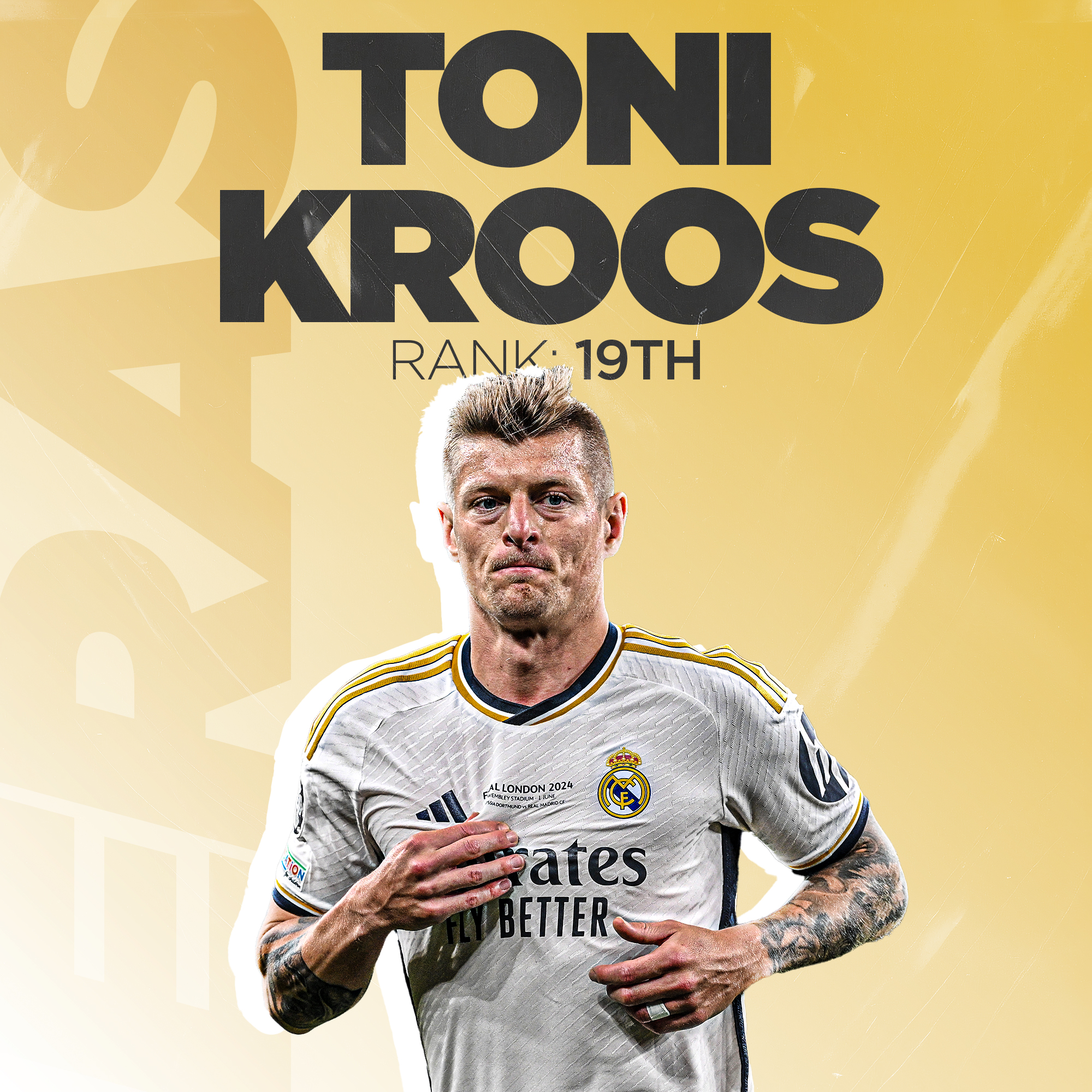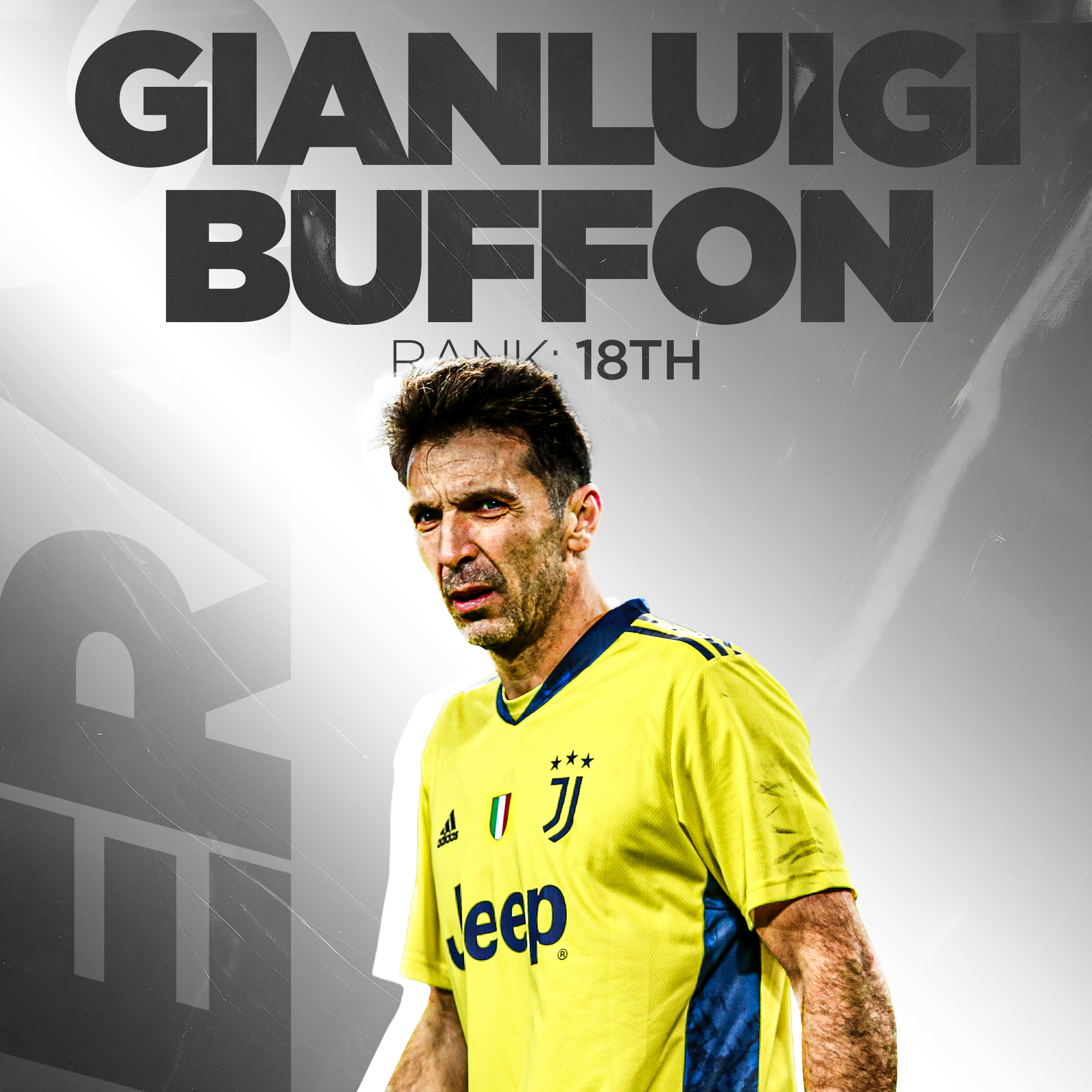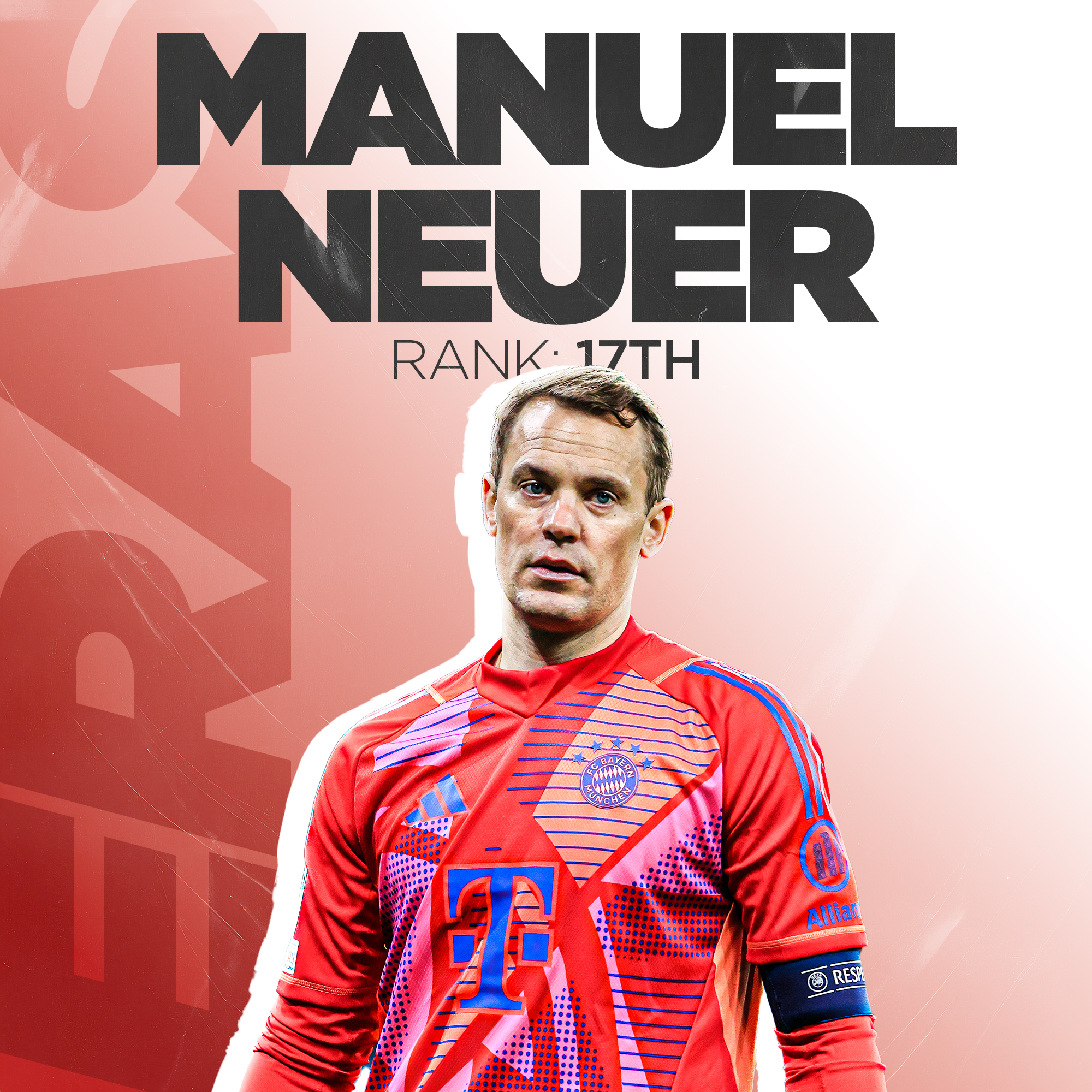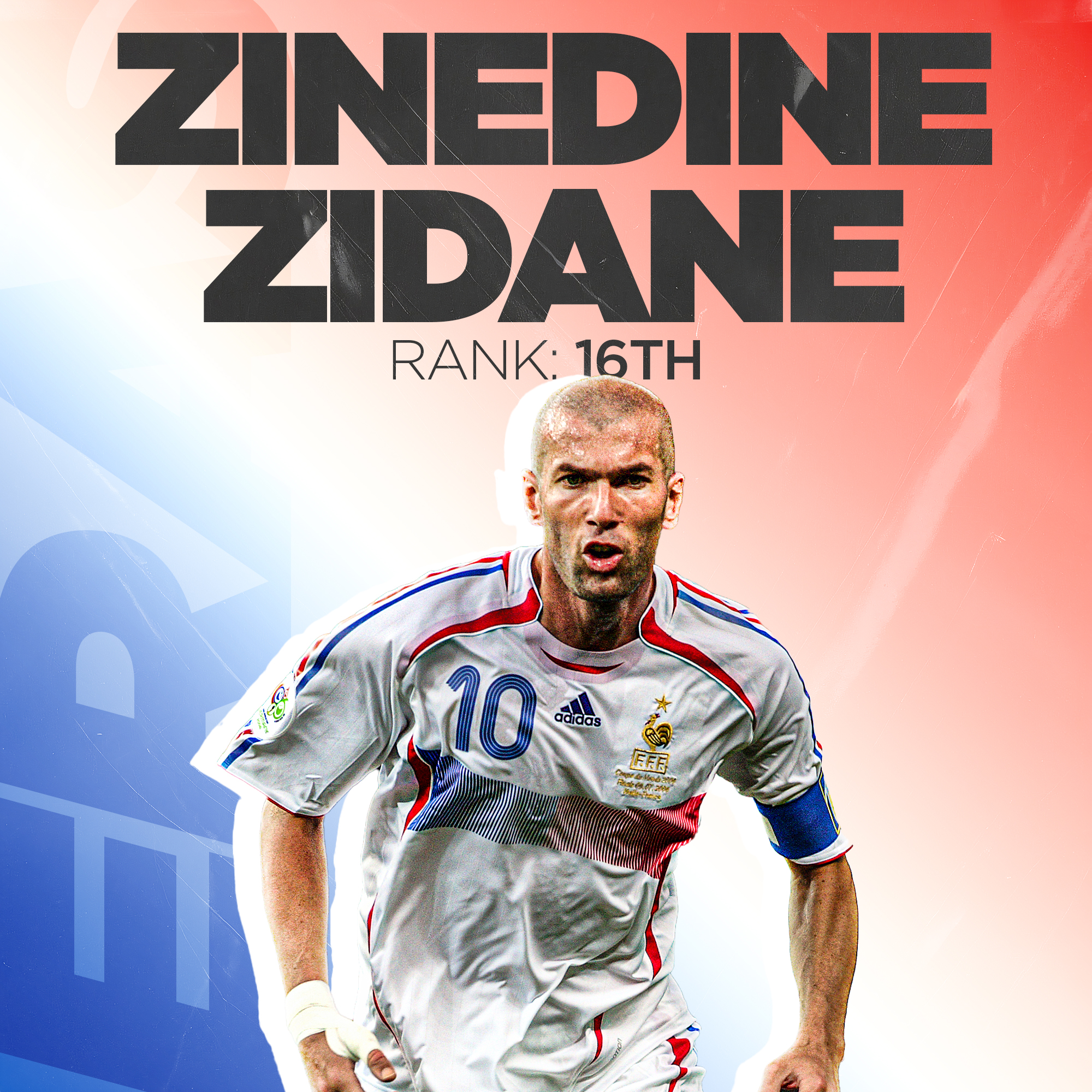Ranking the greatest soccer players since 2000 (Nos. 16-20)
The latest edition of theScore's Eras project, which celebrates greatness in every major sport over the last 25 years, ranks and discusses the 25 best male soccer players since 2000.
Remember: Respective accomplishments and accolades compiled before the year 2000 weren't considered for this project. For example, Zinedine Zidane's titanic showing in the 1998 World Cup isn't part of his resume as it relates to this exercise, but his performances - and the infamous conclusion - in the 2006 tournament are taken into account.
Rankings: 25-21 | 20-16 (below) | 15-11 | 10-6 | 5-1
20. Philipp Lahm 🇩🇪

Era teams: VfB Stuttgart 2003-05; Bayern Munich 2005-17; Germany 2004-14
Signature performance: Every young footballer dreams of winning the World Cup. It's the apex of the sport. At club level, the Champions League is the nearest equivalent. Lifting either famed trophy represents the summit. Lahm did both. Each time, he was wearing the armband for Germany and Bayern Munich, respectively. Lahm was one of his generation's great captains and led the way with his actions rather than his words, preferring on-pitch examples to rah-rah speeches.
In the dramatic victory over Argentina in the 2014 World Cup final, Lahm helped keep Lionel Messi quiet at one end while pushing his team forward in the other direction; he completed more accurate forward passes (69) than any other player in that contest. The born and bred Munich product may actually cherish the 2013 drought-ending Champions League title more, but his incredibly balanced overall game was best displayed one year later.
Why he's here: "He is one of the most fantastic players I ever trained in my life and one of the most intelligent. Football is going to miss one of the best players ever. He can play in 10 positions, no problems, because he understands the game perfectly."
That was Pep Guardiola's description of Lahm when the German announced his retirement in 2017. A little biased? Perhaps. After all, Lahm was Bayern's captain during Guardiola's successful spell in Bavaria, and helped the Catalan coach acclimate to the club upon his arrival. But he wasn't wrong. One person's praise can maybe be dismissed, but Lahm also counted the likes of Xavi and Carlos Alberto, renowned players who operated in the same positions he did during their own illustrious careers, as admirers. Lahm idolized Mehmet Scholl, the former Bayern attacking midfielder, and you could see elements of an attack-minded player in his game, even from his nominally defensive positions.
Lahm was the on-field personification of consistency and reliability for 517 competitive games for Bayern. Did he ever have a truly "bad" performance? That we're even asking the question says it all. He was great at right-back. He excelled at left-back, too. Then Guardiola put him in midfield, and he was brilliant there. He was a pillar for Bayern, winning 21 trophies in 22 years after joining the youth setup as an 11-year-old.
"In 75% of all the games you played in, you were outstanding," Scholl said during Lahm's farewell ceremony. "And in the other 25 you were world class."
19. Toni Kroos 🇩🇪

Era teams: Bayern Munich 2007-09, 2010-14; Bayer Leverkusen 2009-10; Real Madrid 2014-24; Germany 2010-24
Signature performance: Toni Kroos authored an enviable array of brilliant moments before retiring this summer. He produced defense-splitting passes that left teammates frozen in awe while the play was ongoing. He could set up a goal from 50 yards away. He scored with sublime efforts from long range, free-kicks from seemingly impossible angles, and even directly from corners.
But the quintessential Kroos experience came in one of his last matches. The midfielder connected on 99% of his passes in Germany's 5-1 obliteration of Scotland at Euro 2024 this year, the best completion rate ever recorded by a player who attempted 100 or more passes in a game. Kroos, who retired at 34 after Germany's eventual exit from the tournament, was very much at the peak of his powers right until hanging up his boots.
Why he's here: Kroos ended his decorated Real Madrid career as he started. In his first game for the club, he lifted the 2014 UEFA Super Cup. His last came earlier this year, when he won the Champions League for a joint-record sixth time and got his hands on Ol' Big Ears. His glittering career came to an end - prematurely, as he had plenty left in the tank - with 23 trophies for Real Madrid, and 33 overall at club level.
He was the primary tempo setter en route to nearly every one of those triumphs for Real Madrid, pinging the ball around more often - and more accurately - than anyone else in the world. Kroos appeared in 465 official matches for Madrid, completing an astonishing 94% of his passes in that time. It's an extraordinary number, made even more impressive by the era he played in, where deep-lying midfielders are ruthlessly pressed when they get the ball. Kroos, calm and composed, always knew how to evade the pressure. Misguided detractors claimed he only made safe, sideways passes, and that couldn't be farther from the truth. In his final season, his progressive passes traveled a greater total distance than any outfield player in the Champions League. He was second in the category overall. No other midfielder even cracked the top 10.
He created 974 chances and recorded 93 assists during his time in the Spanish capital. His arrival was a sliding doors moment in European football; Kroos very nearly joined Manchester United instead of Real Madrid in 2014. How different things could have been.
"Kroos is irreplaceable, we have to find another way to play without him," Real Madrid manager Carlo Ancelotti said earlier this season, the club's first in a decade without their German maestro patrolling the center of the pitch.
18. Gianluigi Buffon 🇮🇹

Era teams: Parma 2000-01, 2021-23; Juventus 2001-18, 2019-21; PSG 2018-19; Italy 2000-18
Signature performance: The pinnacle of Buffon's iconic career unquestionably arrived in 2006, when he backstopped Italy to the World Cup title. He kept five clean sheets in seven matches, conceding two goals all tournament. Neither came from open play: Cristian Zaccardo scored an own goal in the group stage, and Zidane converted a penalty in the final.
Buffon's catalogue of highlights during that memorable month in Germany included match-saving stops on Lukas Podolski in the classic semifinal clash against the host nation, and a leaping denial of Zidane's goal-bound header in extra time of the final. Buffon finished second in Ballon d'Or voting that year, just behind World Cup-winning captain and teammate Fabio Cannavaro.
Why he's here: Few players transcended rivalry and tribalism like Buffon, a colossal presence who garnered respect during a career that inspired fans and peers alike for nearly three decades. Ask most other goalkeepers and they'll say the Italian was the best of his generation. He's arguably the greatest shot-stopper ever, but his demeanor between the sticks is what separated him from the pack; Buffon would pull off an exceptional save and then immediately share a hug with his thwarted opponent.
Juventus thought they were getting a brilliant goalkeeper when they spent €52 million, a record for the position at the time, to sign him from Parma in 2001. What they ended up with was a universally beloved icon.
It's a pity he never got to hoist the Champions League trophy, the lone accolade that evaded him. Buffon reached the showpiece match three times with Juventus, but fell at the final hurdle on each occasion. The 2003 defeat at Old Trafford, on penalties to Italian rivals AC Milan, stings the most. Buffon made an astounding reaction save on a point-blank Filippo Inzaghi header in normal time - one of his greatest-ever stops - and denied two penalties in the shootout, but it still wasn't enough for Juve, who've lost more European Cup finals (seven) than any club in history. Even still, Buffon was named UEFA's player of the year that season, a feat no other goalkeeper has ever achieved.
"That's all, folks! You gave me everything. I gave you everything. We did it together," he wrote upon retiring last year at age 45.
17. Manuel Neuer 🇩🇪

Era teams: Schalke 2005-11; Bayern Munich 2011-present; Germany 2009-24
Signature performance: Germany wouldn't have won the 2014 World Cup without Neuer - it's that simple. His best work during the tournament surprisingly came in a meeting with Algeria in the round of 16, where his vaunted "sweeper keeper" abilities were on full display. Time after time, the athletic netminder came racing out of his penalty area to subdue a dangerous Algerian opportunity.
Neuer only made three saves, but that hardly tells the whole story. He had 21 touches outside of his penalty area in the match, and completed 17 passes after venturing beyond those confines. Germany was on the ropes for large stretches of the gripping encounter in Brazil before earning a narrow 2-1 victory in extra time. The rest is history.
Why he's here: Various players revolutionized the game throughout the years, changing what we thought we knew and introducing new playing styles and tactical approaches. Think Johan Cruyff and Franz Beckenbauer, for instance. Neuer has a seat at that table. The sweeper keeper role is now commonplace, with Europe's top clubs almost all asking their goalkeepers to serve as the last defender, rushing off the line to extinguish attacks. It's allowed teams to press higher up the field, comfortable in the knowledge that the likes of Ederson and Alisson are capable of mopping up behind the backline. If anything, that skill set is an expectation of young goalkeepers nowadays, not an added bonus. Neuer is widely credited with ushering in that style of goalkeeping.
Former teammate Bastian Schweinsteiger said it best: "First of all he's a good goalkeeper, and then he's a great footballer."
It's the reason why Neuer narrowly eked out Buffon on this list. The Italian, as outlined already, was a better shot-stopper for longer; not that Neuer was a slouch in that department, by the way. But Buffon didn't fundamentally change the position the same way his German counterpart did. We're splitting hairs here, but that served as the tiebreaker for two players whose list of accolades largely mirrors one another.
Neuer, the 38-year-old Bayern captain who's currently in his 19th Bundesliga season, has 11 top-flight German titles to his name. And, crucially in this debate, he's won the Champions League twice to go along with his aforementioned World Cup crown.
16. Zinedine Zidane 🇫🇷

Era teams: Juventus 2000-01; Real Madrid 2001-06; France 2000-06
Signature performance: The obvious answer here is ineligible; Zidane's two-goal performance that lifted France to a commanding 3-0 win over Brazil in the 1998 World Cup final occurred just outside this exercise's evaluation window. While most other players wouldn't have a backup option, Zidane has several.
His swinging, almost slow-motion volley in 2002 is arguably the greatest Champions League final goal ever scored. It was the winner, too. The Frenchman knew how to produce magical moments. But, as a body of work, his performance in the 2006 World Cup quarterfinal against Brazil was pure, unfiltered Zidane. He spent 90 minutes dancing around a team that included Ronaldinho and Kaka, doing pirouettes on the pitch and setting up his country's winning goal as Les Bleus went all the way to the final.
Zizou 😍#TBT to his iconic performance against Brazil at Germany 2006 ✨@equipedefrance | @FrenchTeam pic.twitter.com/OpYBQ7tMqa
— FIFA World Cup (@FIFAWorldCup) May 2, 2019
Why he's here: Zidane's one of the best footballers ever - that's not up for debate here. He made everything look effortless, combining elegance on the ball and a pillow-like touch with a fieriness and physicality that allowed him to wrest it back from the opposition. When he did, he proceeded to hoodwink midfielders and defenders with any number of flicks, feints, and stepovers.
If this was simply about how a player made you feel when you watched them, Zidane would have a legitimate claim to the No. 1 spot. The same would be true if we were evaluating his entire career. Our parameters harm him more than almost anyone else on this list.
From 2000 onward, Zidane only played six years, retiring after his infamous - and costly - headbutt on Marco Materazzi in the 2006 World Cup final. He won the Champions League, European Championship, and La Liga once each in that time, never scoring more than nine goals in any single league season and only once hitting double digits in assists.
Yet we couldn't deny how special his peak moments were, and how he, more than most, elevated the sport and made it worthy of its "beautiful game" moniker.
Follow the rollout all week long. Wednesday: Nos. 11-15.